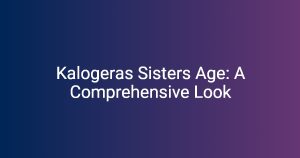On September 11, 2001, the world witnessed an unprecedented tragedy—the terrorist attacks on the United States that drastically altered not only the American landscape but also the global socio-political environment. Those events and their aftermath have continued to resonate deeply with many, leaving scars that individuals and communities strive to confront in various ways, including through humor. This leads us to a complex conversation about jokes on 9/11: an area fraught with sensitivity and scrutiny.
Understanding the Impact of 9/11
Brief Overview of 9/11
The attacks on 9/11 claimed nearly 3,000 lives, impacting families, friends, and the nation as a whole. The day began with hijacked airplanes, two of which struck the Twin Towers of the World Trade Center, while another hit the Pentagon and the fourth crashed in Pennsylvania. The emotional responses to these tragedies were profound, with grief, anger, and confusion prevailing.
Sensitivity of Humor Around Tragedy
Humor can often serve as a coping mechanism for trauma, allowing individuals to process their feelings in a less intense manner. However, the debate surrounding what topics are suitable for humor remains contentious. While some argue that jokes on 9/11 can be a means of healing, others view them as a disrespectful affront to the tragedy’s victims and their families.
The Controversy Surrounding 9/11 Jokes
Public Perception
Reactions to jokes on 9/11 vary widely across different demographics. For some, humor serves as a necessary balm, offering a release from the weight of past traumas. Conversely, many express emotional sensitivity, feeling that any form of jest trivializes the suffering experienced by thousands. Factors such as age, cultural background, and personal experience play significant roles in shaping these perspectives.
Historical Context
Looking back at history, we find similar controversies surrounding humor regarding tragedies, such as jokes about the Holocaust. Different cultures navigate the landscape of humor differently, with some using satire more freely than others. Such historical examples paint a fuller picture of why jokes on 9/11 continue to provoke strong responses.
Types of Jokes Made About 9/11
Dark Comedy
Dark comedy allows comedians to tackle taboo subjects through humor, often eliciting laughter in the face of discomfort. Notable comedians like Sarah Silverman and David Cross have integrated jokes on 9/11 into their routines, inviting both laughter and protest as they navigate a sensitive topic.
Satire and Parody
Satirical humor can provide insightful commentary on events, and in the context of 9/11, it has been utilized to explore societal responses and political narratives that emerged afterward. Shows like “Saturday Night Live” have produced poignant parodies, reflecting both absurdity and the complexities of American reactions to the tragedy.
Internet Memes and Viral Jokes
With the advent of social media, internet memes have become a new form of comedy—sometimes used to spread jokes on 9/11. This digital approach has sparked debate about the ethics of making light of such tragedies, as memes often reach wide audiences without the necessary context.
Reactions from Comedians and Public Figures
Comedians Who Have Addressed 9/11
Numerous comedians have tackled jokes on 9/11, offering varied responses. For instance, Louis C.K. humorously remarked, “I was in New York when the towers fell, and the only thing that bothered me was that I didn’t find it funny.” Such remarks illustrate the fine line comedians tread within their craft, balancing humor with respect for the tragedy’s weight.
Response from the Comedy Community
Within the comedic community, reactions are mixed. Some support the use of jokes on 9/11, asserting that comedy must remain a space for all topics, even the most sensitive. In contrast, others argue for caution, emphasizing the importance of empathy and respect for those affected by the tragedy.
Psychological Perspective on Humor and Trauma
The Psychology of Laughter
Humor can act as a psychological tool for coping with trauma. Laughter helps individuals distance themselves from pain, allowing for a healthy handling of grief and sorrow. It’s essential to understand why people may laugh at inappropriate moments, as such reactions often reveal deeper issues of processing trauma.
Impact on Survivors and Victims’ Families
The impact of jokes on 9/11 can be profound, particularly for survivors and the families of victims. Many express that jokes can reopen old wounds, invoking feelings of anger and sadness rather than laughter. Testimonies from these individuals underscore the necessity for sensitivity when approaching humor related to such tragedies.
Ethical Considerations in Making Jokes About 9/11
The Line Between Humor and Insensitivity
Navigating the line between humor and insensitivity is complex. Criteria for determining a joke in poor taste often include the context in which it is delivered, the audience’s background, and the speaker’s intent. Cultural and social shifts over time also highlight how the understanding of appropriate humor can evolve.
The Role of Intent and Context
The intent behind a joke is critical in assessing its appropriateness. Comedians often gauge audience reactions to tailor their material effectively, while context plays a significant role in how jokes are received. Understanding the nuances surrounding jokes on 9/11 is crucial for deciphering their impact.
Conclusion
Summary of Key Points
The landscape surrounding jokes on 9/11 is fraught with complexity, balancing humor and respect for tragedy. Through various comedic forms—dark comedy, satire, and internet memes—we observe differing opinions on this sensitive topic.
Open Questions for Further Exploration
As we reflect on the role of humor in the face of tragedy, questions remain regarding cultural sensitivity and the evolution of comedy. What does the discourse surrounding jokes on 9/11 reveal about our societal values? This ongoing conversation may provide insights into how we understand and process collective trauma.
Resources for More Information
Further Reading
For a deeper understanding of comedy and tragedy, consider reading “Comedy and Trauma: The Role of Humor in Healing” or “Laughter After Tragedy: The Role of Humor in Coping.” These resources provide valuable insights on the topic.
Notable Documentaries and Films
Explore the film “The United States of Comedy” for a firsthand look at how comedians navigate difficult topics while engaging with audiences. The documentary “9/11: The Falling Man” also provides rich historical context surrounding the events.
Comedic Works Discussing 9/11
Check out stand-up specials by comedians like Jon Stewart and John Oliver, who often touch upon sensitive topics regarding 9/11 while maintaining humor.
| Type of Humor | Description | Examples |
|---|---|---|
| Dark Comedy | Humor that finds light in sensitive subjects. | Sarah Silverman’s routines |
| Satire | Humor that critiques societal norms and events. | “Saturday Night Live” sketches |
| Internet Memes | Viral jokes and images shared across platforms. | Social media posts referencing 9/11 |
FAQs
What are jokes on 9/11?
Jokes on 9/11 refer to humor that attempts to deal with or comment on the events surrounding the September 11 attacks, often leading to contentious reactions.
Why do some people find 9/11 jokes funny?
Some find humor helpful in processing grief or tension, using jokes on 9/11 as a coping mechanism.
Are there ethical concerns with making jokes about 9/11?
Yes, many consider it potentially insensitive, especially to those directly affected by the attacks.
How do comedians approach jokes on sensitive topics?
Comedians often gauge audience reactions, tailoring their approach based on the demographic and context.
What is the role of context in interpreting humor?
Context influences how humor is received, making it essential for comedians to consider their audience and timing.
Can humor help in healing after a tragedy?
Yes, humor can serve as a coping mechanism, allowing individuals to process their trauma in a less direct way.
What resources can help understand humor around tragedies better?
Books and documentaries about comedy and trauma provide insights into the relationship between humor and difficult experiences.
How have societal attitudes towards 9/11 jokes changed over time?
Attitudes can evolve, with societal norms influencing perceptions of what is acceptable or offensive in humor.
What is dark comedy?
Dark comedy involves making light of topics typically considered serious or taboo, including tragedies.
Can you name some comedians who use 9/11 material?
Comedians like Jon Stewart, Sarah Silverman, and Louis C.K. have all addressed 9/11 in their routines, often to mixed reactions.




